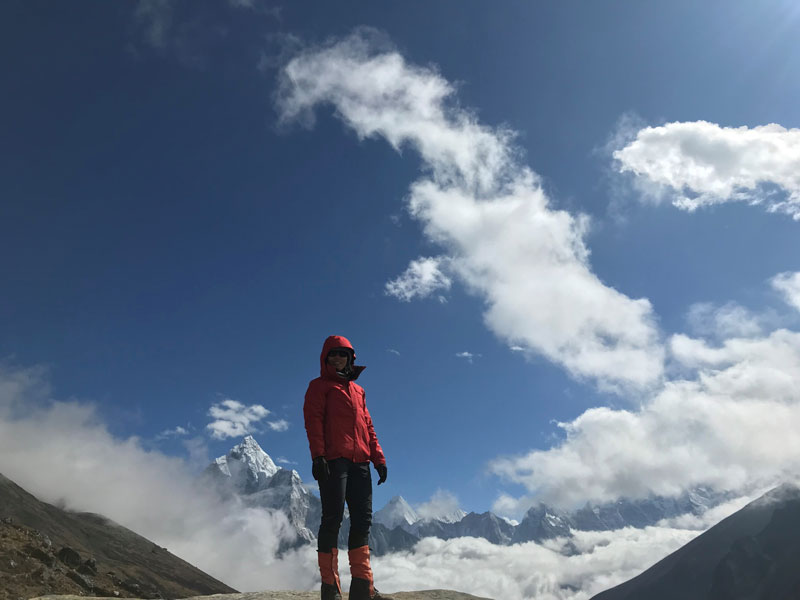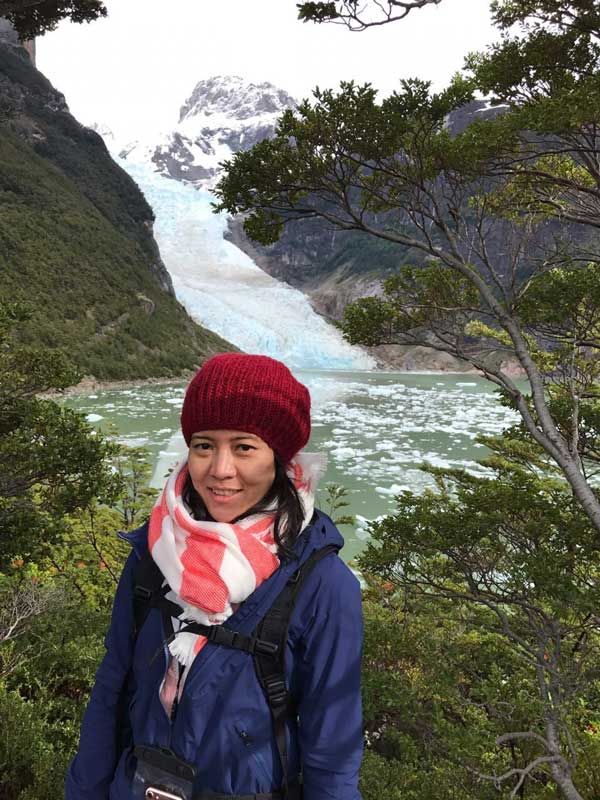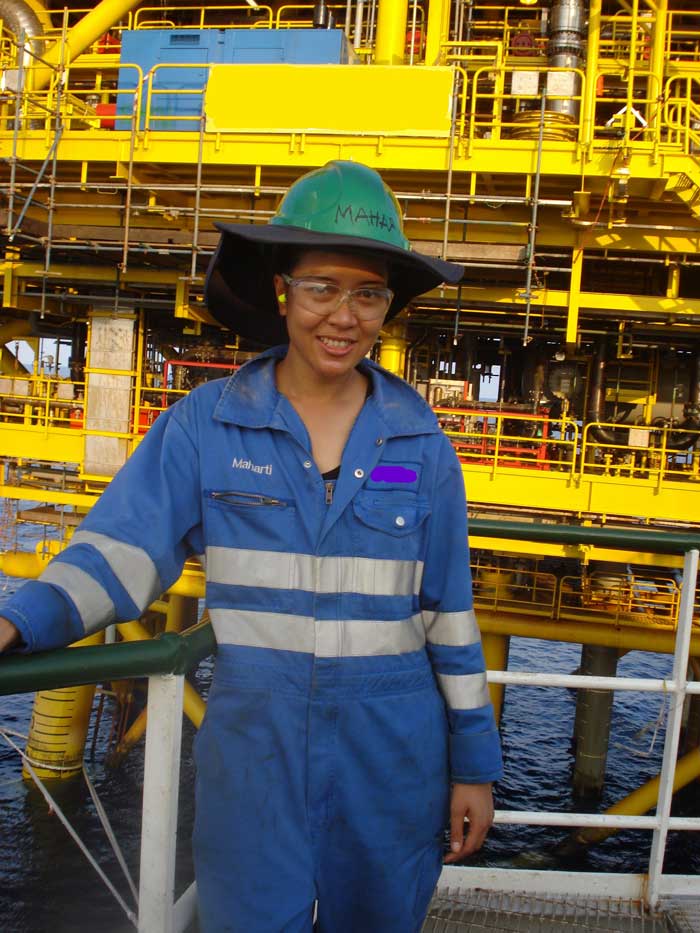Why representation of women in STEM matters to Maharti
Maharti Triharta joined the Melbourne Social Equity Institute and the Faculty of Engineering and IT to study a PhD with a research scholarship to explore social equity through engineering and information technology. Here is the story of how she came to shift her career to include a research project close to her heart:
"I decided to do a Master of Environmental Engineering after I took a career break to trek around the world. I witnessed several retreating glaciers, waste issues in Everest, bad droughts and the impact of user behaviours in Cape Town.


Returning to study engineering gave me hope that I could transform my career and gain a broader perspective that I don’t think could have happened if I’d stayed in my previous industry and role. I’m now completing a PhD with the Melbourne Society Equity Institute and Faculty of Engineering and IT where I’m researching a topic close to heart – representation of women in STEM and how in-born biological reproductive systems are impacting career development of female engineers.
After completing my undergraduate studies, I went straight into the industry where I became an expatriate Petroleum Engineer, working across the globe for nine years. I have extensive experience as a female in male dominated workforces, with the first five-to-six years of my career spent on rigs offshore and onshore where I was often the only woman.
My masters led me to a role tutoring with the Department of Infrastructure Engineering in subjects on Solid Waste to Sustainable Resources and Energy Efficiency. This gave me the time and opportunity to think of a research topic I am passionate about.
The decision to complete a PhD means I can bring my experience working in the industry and hopefully generate concepts that bring possibilities for female engineers to have sustainable careers throughout the course of their professional life.
Social science is a completely new field for me as my background was purely technical, so it initially felt completely out of my comfort zone, but this is part of the journey through a PhD. The Foundation Director of the Melbourne Society Equity Institute, Professor Bernadette McSherry, highlighted in a blog post that social equity is hard to define and it can mean different things to different people (MSEI, 2013) and this has really fascinated me. My research aims to investigate the extent of gender biological reproductive inequities to career development of female engineers in a profession dominated by a sense of masculinity. This research doesn’t seek sameness not equivalency between genders, but is about finding recognition and mitigation of the impacts that reproductive gender inequities. These inequities are inborn and seems to get lost in the gender equality movement. This inequity should be mentally recognised as scientific fact and openly addressed at all levels – especially the regulatory and managerial levels, with the aim of creating sustainable pathways for female engineers’ career development .
From my observation working in the field, there are high attrition rates for female engineers around their mid-30s compared to their male counterparts. An attrition rate is the typical rate that people leave – this could be leaving a job, a company or an industry. Is the female biological reproductive system playing a part? Human reproductive systems are born unequal between the two sexes. Males can be considered to have infinite seed reserves during their productive professional ages, whereas female seed reserves start ticking and expiring in the middle of this professional development period. My PhD gives me the chance to discuss how the biological reproductive inequalities can be recognised and openly addressed at all levels. This will help to create a sustainable pathway for female engineers’ career development.
With more female professionals prioritising their career over their biological reproductive system, the proportion of first-time mothers aged 30-34 years old has increased from 31% in 2009 to 36% in 2019 (Australian Institute of Health and Welfare, 2021). This figure implies that more women commence their reproductive journey at an age where the female reproductive system starts to decline. With the masculine dominance of the engineering industry, first-time mothers in this field are potentially higher than this average but there currently aren’t any statistical studies on mothers in the engineering profession. These biological reproductive inequalities shouldn’t be stigmatized in any male-dominated profession, but should be recognised especially at regulatory and managerial levels.
Taking a step away from my career to do a PhD was exciting, yet daunting. For most people, taking a step away from a career to return to study isn’t always feasible. This can be due to family, time or financial commitments – or even the psychological implication of ‘restarting’ something that you’ve taken years to build and probably excel at. But I don’t see this as a step back or a restart, but rather a reformation of my career which is the key to longevity and sustainability. Being a part of the Melbourne Social Equity Institute and the Faculty of Engineering and IT has been a fantastic support through not only financial coverage, but also to create a platform for me to promote my research while at the same time exposing myself to a broader audience.
MSEI has provided me with the platform to promote my research, and exposed me to conversations and interactions through conference that deeply relates to my research. One example would be the Gender and Sexuality at Work conference that that MSEI sponsored held in February 2022.
I’m fascinated by how engineering and technology can be transferred between industries and professions. I know of several of the teaching professionals in the University who’ve managed to navigate and transform their expertise (and careers) from one area to the next. My PhD is the combination of my professional, industry expertise and a passion for women in STEM."
The Melbourne Society Equity Institute research program focuses on Mental Health and Society, Migration and Social Cohesion and Digital Access and Equity. Scholarships like this will help develop a cohort of future Australian research leadership in social equity by providing access to resources and mentorship.
Related topics
Melbourne Social Equity Institute Doctor of Philosophy (Engineering and IT)